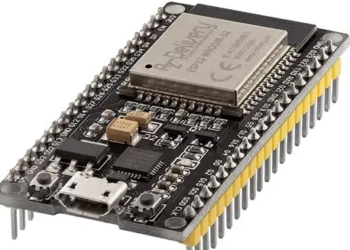If you’ve ever wanted to challenge a computer to a simple game of rock, paper, scissors, now’s your chance—and your opponent might just be a Raspberry Pi. A recent project by tinkerer Citrus showcases how the Raspberry Pi 5 can be paired with AI to recognize hand gestures in real-time, turning a classic game into a tech showcase. No internet, no cloud processing, just pure on-device smarts.
Playing Rock, Paper, Scissors with a Smarter Raspberry Pi
You might think a rock, paper, scissors game is child’s play, but the technology behind Citrus’ build is seriously cool. Using a Raspberry Pi 5, a Raspberry Pi Touch Display, and the Raspberry Pi AI camera, the system can spot your hand gesture instantly. The twist? Instead of sending your hand signs to some far-off AI server and waiting ages for the answer, this clever setup crunches all the data right on the Raspberry Pi itself.
This local processing is not just faster but way cheaper since there’s no cloud fee eating up your wallet. Plus, it makes the game feel snappier, almost like playing against a human who actually gets what you’re doing in real time.
The video Citrus posted shows the game in action, and honestly, it looks impressive. The system recognizes rock, paper, or scissors with speed and accuracy that’s no joke.

High Accuracy Meets Real-Time Speed in Gesture Detection
Here’s the kicker: the AI model driving the game has a classification accuracy and recall rate above 95%. That means it’s right almost every single time. That’s pretty wild for something running on a tiny single-board computer!
Environmental changes—different lighting, angles, or backgrounds—don’t throw it off much either. The system handles those like a champ, maintaining super-low latency, which is crucial for any game that depends on quick reflexes.
-
Gesture recognition accuracy: >95%
-
Low latency processing
-
Works well in varied conditions
| Feature | Performance |
|---|---|
| Accuracy | Above 95% |
| Latency | Extremely low |
| Environmental Robustness | Strong across conditions |
This tech isn’t just a neat party trick, either. Citrus points out it has broader potential. Think about smart homes where you control devices with a simple hand gesture or healthcare settings where accessibility tech can be powered by a small AI setup like this. It’s a small step from a rock-paper-scissors game to powerful, life-changing tech.
Why This Raspberry Pi Project Stands Out
What’s refreshing here is the DIY spirit. It’s not about fancy, expensive gear or huge server farms doing the work. The Raspberry Pi 5 itself, a tiny, affordable computer, can handle complex AI tasks like hand gesture recognition smoothly. It’s a testament to how far SBCs have come in performance and versatility.
Also, it’s a great example of how AI doesn’t have to be complicated or intimidating. If you’re a maker or a beginner, projects like this one can get you thinking about how AI can be applied in fun and practical ways. You get to build, learn, and actually use AI, not just read about it.
Beyond Games: Practical Uses for Gesture Recognition
Imagine waving a hand to turn on the lights or signaling a pause with a gesture to a media player. For people with accessibility needs, this kind of technology could open new doors to interacting with devices effortlessly.
Citrus’ rock-paper-scissors project is more than a game; it’s a glimpse into what everyday AI could look like soon. And since everything runs locally on the Pi, it’s private, secure, and always ready to play.
There’s a lot to explore here. What else could you control with a wave of your hand? Could this be the start of new smart home gadgets or assistive tools?
The possibilities seem endless. And hey, if you manage to beat your Raspberry Pi opponent, be sure to brag a little—it earned that victory fair and square.
































